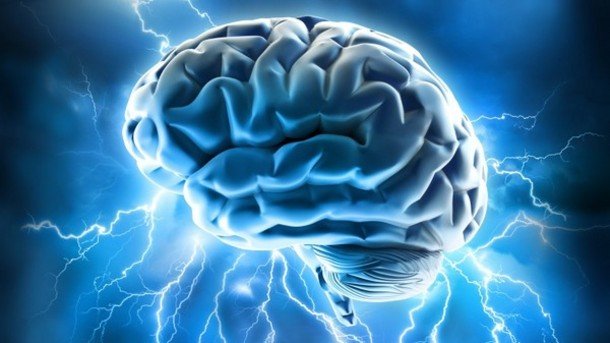Studies in Aspergers, and mySelf. Part 1
Recently, I started to suspect I may have some form of Autism. I have a lot to learn on this journey, but I'm finding comfort to finally have some answers to what exactly makes me different from "neurotypical" people.
What is Aspergers?
Although the American Psychiatric Association decided in 2013 that Autism and Asbergers are actually different forms of the same condition(1). Science now refers to them both under the classification "Autism Spectrum Disorder" (ASD). However, the terms Aspergers, and Autism retain popular usage, which refer to distinct sets of conditions within that spectrum.

Asperger’s Disorder (299.80 DSM-IV)
The essential features of Asperger’s Disorder are severe and sustained impairment in social interaction and the development of restricted, repetitive patterns of behavior, interest, and activity. The disturbance must clinically show significant impairment in social, occupational, and other important areas of functioning. In contrast to Autistic Disorder, there are no clinically significant delays in language. In addition there are no clinically significant delays in cognitive development or in the development of age-appropriate self-help skills, adaptive behavior, and curiosity about the environment in childhood.
A. Qualitative impairment in social interaction, as manifested by at least two of the following:
- Marked impairment in the use of multiple nonverbal behaviors such as eye-to-eye gaze, facial expression, body postures, and gestures to regulate social interaction
- Failure to develop peer relationships appropriate to developmental level
- A lack of spontaneous seeking to share enjoyment, interests, or achievements with other people (e.g., by a lack of showing, bringing, or pointing out objects of interest to other people)
- Lack of social or emotional reciprocity
B. Restricted repetitive and stereotyped patterns of behavior, interests, and activities, as manifested by at least one of the following:
- Encompassing preoccupation with one or more stereotyped and restricted patterns of interest that is abnormal either in intensity or focus
- Apparently inflexible adherence to specific, non-functional routines or rituals
- Stereotyped and repetitive motor mannerisms (e.g., hand or finger flapping or twisting, or complex whole-body movements)
- Persistent preoccupation with parts of objects
C. The disturbance causes clinically significant impairment in social, occupational, or other important areas of functioning.
D. There is no clinically significant general delay in language (e.g., single words used by age 2 years, communicative phrases used by age 3 years)
E. There is no clinically significant delay in cognitive development or in the development of age-appropriate self-help skills, adaptive behavior (other than in social interaction), and curiosity about the environment in childhood.
What's that got to do with me?
The description above is quite compelling to me, since it echos many difficulties I've faced throughout my life. Aspergers can affect people in a variety of ways. Although there are many similarities between people with the same condition, it can manifest quite differently from person to person.
One peculiarity, that I've experienced throughout my life, is that I don't have much of a visual imagination. I realized from a fairly young age, that people around me had a much more vivid visual imagination. I suppose I never give it too much thought. It has been frustrating that I can't do certain types of meditation. The more I think about it, more I can recall the numerous ways this has effected me. I imagine anything visually I can't see much at all, it's all cloudy. I can conjure up a faint echo of an image in my mind, but nothing I can really see.
A large segment of those with Aspergers experience Hyperphantasia, which is an extremely heightened visual imagination. Whereas, I'm the opposite, and found that I'm not alone!
In 2015 professors at the University of Exeter coined the term "aphantasia" to classify the inability to voluntarily create mental images. They released a paper to amass what little is known about the condition, including a survey of a small group of respondents who claimed to suffer from a lack of visual imagination.
Here are a few quotes from that paper3:
"The experience of voluntary imagery is associated with activity in fronto-parietal ‘executive’ systems and in posterior brain regions which together enable us to generate images on the basis of our stored knowledge of appearances (Bartolomeo, 2008)." "14/21 participants reported difficulties with autobiographical memory. The same number identified compensatory strengths in verbal, mathematical and logical domains. Their successful performance in a task that would normally elicit imagery – ‘count how many windows there are in your house or apartment’ - was achieved by drawing on what participants described as ‘knowledge’, ‘memory’ and ‘subvisual’ models." I think in words, I suppose, but often it's more abstract than that. I do have a little bit of visual imagination, and some of that plays a minor background role to my thought process. The there hasn't been a lot of research, yet, on the relation between Asperger, and aphantasia. Aspergers has been studied since the 90's, while aphantasia has only been classified very recently. It seems that there must be some relation, and no coincidence, that a small portion of people with aspergers would have no visual imagination, instead of the more common extreme. "We suspect, however, that aphantasia will prove to be a variant of neuropsychological functioning akin to synaesthesia (Barnett & Newell, 2008) and to congenital prosopagnosia (Gruter, Gruter, Bell, & Carbon, 2009). Indeed, aphantasia may have some specific relationship to these disorders, as congenital prosopagnosia is associated with unusually low (Gruter et al., 2009), and synaesthesia with unusually high (Barnett & Newell, 2008), VVIQ scores."(3) It's interesting to note that the professors at Exeter suspect a link between aphantasia and prosopagnosia. Prosopagnosia, is the inability to remember or recognize faces.
What else?

I won't say that I can't remember faces at all, but I've met plenty of people who say "I always remember a face". I've often had difficulty recognizing people I know, or remember people I've met. This has lead to a lot of difficulty in my life. Especially at times in my life when I was meeting a lot of people all the time, and often couldn't remember who they were later.
There isn't much is known. yet, about aphantasia. Prosopagnosia, on the other hand, is fairly well documented in people with autism.
Face identity recognition in autism spectrum disorders: A review of behavioral studies
This is the beginning of my studies regarding my, likely, case of asbergers.
One of the hardest parts of having this condition, is always knowing that there was something wrong with me, but not having a way to explain it. I'm finding a lot of relief in finally having a way to relate, to others, the difficulties I've faced through-out my life.
Maybe this will help others on their own journey of self exploration.
"Know Thyself"
Autism prevalence and the DSM
DSM-IV Diagnostic Classifications
Aphantasia: 10,000 people make contact over visual imagery
"Lives without imagery – congenital aphantasia" - University of Exeter
Face identity recognition in autism spectrum disorders: A review of behavioral studies
Oh wow, this is a brilliant piece of work and could really help some people out there that may be undiagnosed themselves or have loved ones that could fit this description. Great post - I am off to read part 2 now
thank you! I'm glad you think so! I'm just beginning, really. I've got a few browser tabs open with other conditions I have which are likely related. I'm building a case for family members, and a therapist I've recently started seeing. Much easier for me to share this written word, than to try and explain myself.